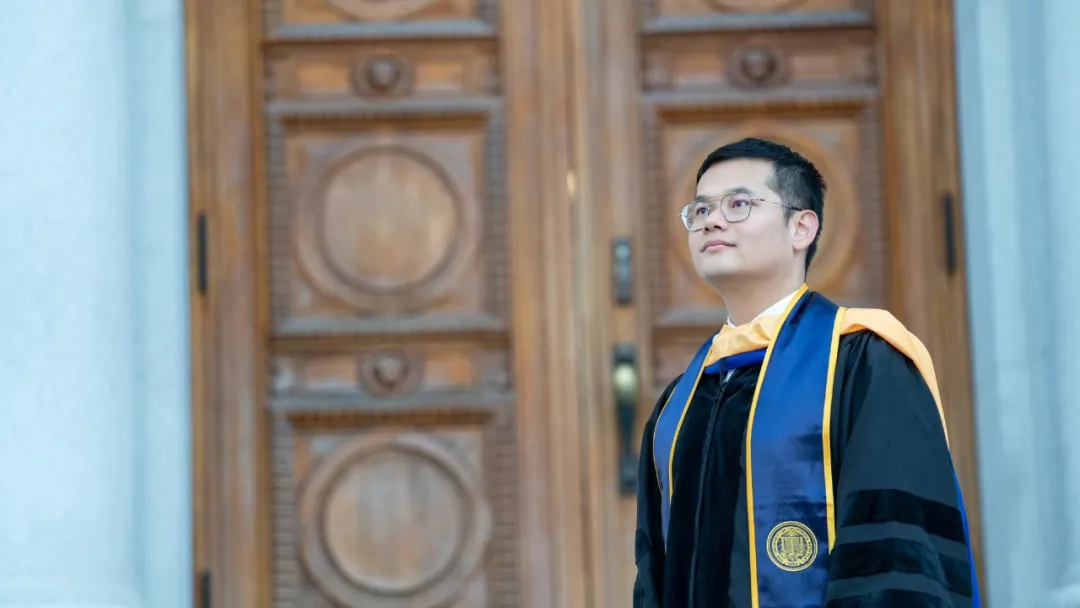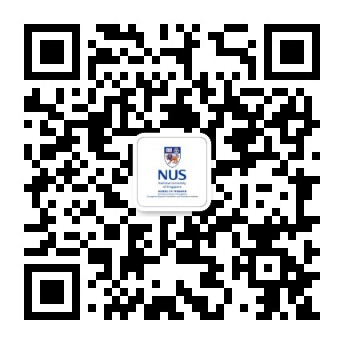Recently, Zhang Jiaheng, Principal Investigator (PI) at the National University of Singapore (Guangzhou) Research Translation and Innovation Institute (NUS GRTII) and Assistant Professor in the NUS Department of Computer Science, was awarded the 2025 World Artificial Intelligence Conference (WAIC) Yunfan Award · Rising Star. Launched in 2020 by WAIC, the Yunfan Award is the world’s first authoritative accolade dedicated to recognizing young technical talents in the AI field, aiming to discover and honor outstanding young individuals who have made significant contributions and show great potential in AI.
Zhang Jiaheng

Principal Investigator, NUS (Guangzhou) Research Translation and Innovation Institute
Assistant Professor, NUS Department of Computer Science
From 2014 to 2018, he studied Computer Science in the Zhiyuan College (ACM Class) at Shanghai Jiao Tong University, conducting his graduation project under Professor Deng Xiaotie, Member of the European Academy of Sciences and Director of the Center on Frontiers of Computing Studies at Peking University. He then pursued a Ph.D. at the University of California, Berkeley (UC Berkeley), under the supervision of globally renowned security expert and ACM Fellow Professor Dawn Song, and Professor Zhang Yupeng from the University of Illinois Urbana-Champaign (UIUC). During this period, he maintained close collaboration with Professor Elaine Shi, a leading figure in security at Carnegie Mellon University (CMU) and ACM Fellow, and obtained his Ph.D. in 2023. His research focuses on computer security and privacy, machine learning security and privacy, privacy protection for large models, applied cryptography, blockchain technology, and large model systems, encompassing both theoretical algorithmic innovations and practical applications.
As an Assistant Professor and Ph.D. supervisor in the NUS Department of Computer Science, Assistant Professor Zhang Jiaheng has conducted in-depth research in security and privacy, applied cryptography, zero-knowledge proofs, blockchain, and machine learning security. In 2025, his team successively published three significant research outcomes at top-tier computer security conferences, USENIX Security 2025 and ASPLOS 2025, achieving systematic breakthroughs in zero-knowledge proof (ZKP) technology. These advancements cover efficient algorithm design, underlying protocol optimization, and hardware acceleration, laying the foundation for the scalable application of privacy computing and blockchain.
From Academic Excellence to Industry-Academia Integration
The Growth Path of a Young Scholar
As an active young scholar at the international academic forefront, Zhang Jiaheng serves as the Chief Scientist of the blockchain project PolyHedra, leading ZKP technology R&D and cross-chain interoperability protocol design. He also serves as a program committee member and reviewer for several top international conferences, making significant contributions to advancing academic development. He organized the ICLR 2025 workshop focused on foundational models in practical applications, promoting exchange and collaboration between academia and industry.
To date, Zhang Jiaheng has published multiple papers as a core author at top conferences such as CRYPTO, S&P (Oakland), CCS, USENIX Security, and ASPLOS. His research has been covered by media outlets including Facebook Research, Hacking Distributed, and Medium.
Furthermore, his blockchain cross-chain bridge project, zkBridge, has been adopted in practical products by several companies, with peak funding exceeding USD 50 million and a market valuation reaching USD 1 billion. The commercial value of technological implementation and the breadth of international collaboration demonstrate the ability to translate high-quality scientific research “from the lab to the industry”, highlighting the synergistic power of technological innovation within a global vision.
Systematic Breakthroughs in Zero-Knowledge Proof Technology
Empowering Security Applications Across Multiple Fields
Zhang Jiaheng’s research possesses both theoretical depth and practical value.
In the blockchain field, the novel security protocols developed by his team address theoretical shortcomings and promote the application of blockchain technology in sectors such as finance and the Internet of Things.
In the AI security field, his team proposed the first efficient non-interactive zero-knowledge proof framework, a breakthrough providing reliable security guarantees for AI applications in sensitive areas like healthcare and finance. At the core technical level of zero-knowledge proofs, the team also introduced an efficient multilinear polynomial commitment scheme based on Reed-Solomon codes, offering more efficient underlying technical support for applications such as blockchain privacy transactions and smart contract verification.
In hardware acceleration, the team’s paper presented at ASPLOS 2025, A Fully Pipelined GPU-Accelerated System for Batch Generation of Zero-Knowledge Proofs, achieved the first GPU pipeline-based batch ZKP generation system. By parallelizing computations and optimizing memory, the system increased throughput by dozens of times. Experimental data showed that for Ethereum-level transaction verification tasks, the system could complete in one hour what traditional CPU clusters would take days to process.
Zhang Jiaheng believes that outstanding scientific research should solve real-world problems. He often says, “In our research, we should not only pursue theoretical breakthroughs but also consider how to implement these technologies to create value for society.”
Zhang Jiaheng stated that he will continue to delve deeper into the security and privacy field, exploring the theory and application of cutting-edge technologies such as zero-knowledge proofs, blockchain, and AI security, promoting the practical implementation of research outcomes to create more value for society. His scientific journey sets an example for young scholars, inspiring more people to scale academic heights. The research path of this young scholar is contributing significantly to building a safer and more reliable digital world.
Diving deeper, reaching farther, and exploring the frontiers. Leveraging NUS’s world-class research strengths and resources, the NUS Guangzhou Research Translation and Innovation Institute has selected dozens of NUS professors and experts as Principal Investigators (PIs) across seven key areas: Smart City, Information and Communications, Electronic Technology, Advanced Manufacturing, Artificial Intelligence Applications, Biomedical Sciences, and FinTech. It has established five cutting-edge laboratories—the Humanoid Robotics Lab, Smart Healthcare Lab, Smart Systems Lab, AI Application Lab, and 3D Printing Lab—to support various interdisciplinary and cross-domain research at the Institute.
The PIs lead the operations of the Institute’s laboratories, overseeing diverse research projects, mentoring PhD students and postdoctoral researchers, and building R&D engineer teams. Simultaneously, they actively collaborate with enterprises and research institutions in Singapore, the Greater Bay Area, Guangzhou City, and Guangzhou’s Huangpu District, focusing on tackling technical challenges, accelerating the translation of research outcomes, and promoting scientific innovation and practical applications between China and Singapore. We will continue to introduce the Institute’s PI team and their representative research on our official website. Welcome your attention and exploration of collaboration opportunities!


